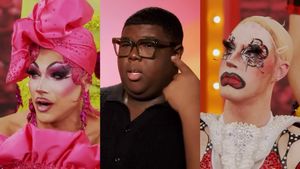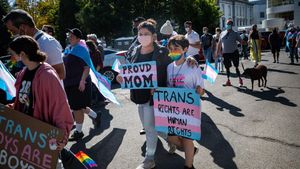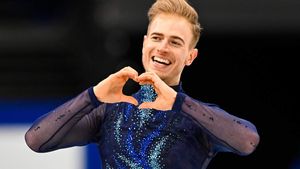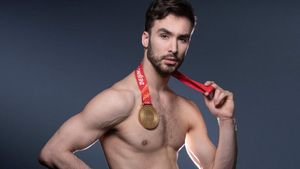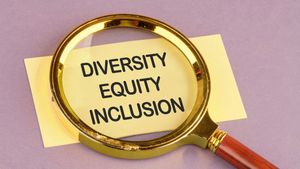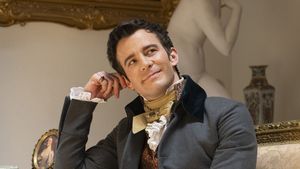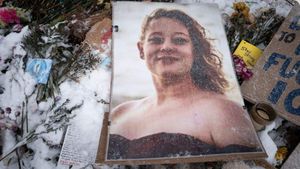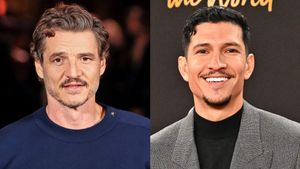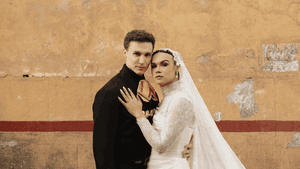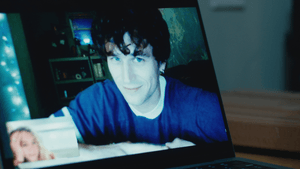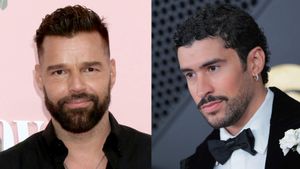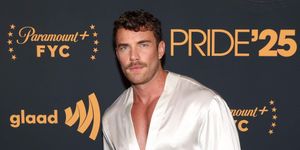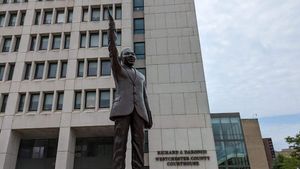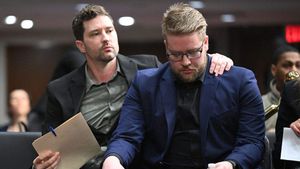Treatment GuideJust DiagnosedSex & DatingAfrican AmericanStigmaAsk the HIV DocPrEP En EspañolNewsVoicesPrint IssueVideoOut 100
CONTACTCAREER OPPORTUNITIESADVERTISE WITH USPRIVACY POLICYPRIVACY PREFERENCESTERMS OF USELEGAL NOTICE
© 2026 Pride Publishing Inc.
All Rights reserved
All Rights reserved
By continuing to use our site, you agree to our Privacy Policy and Terms of Use.
Women. Men. Children. Homosexuals. Heterosexuals. Of African descent. Of Asian descent. Of European descent. Native to the Americas' There is no group on our planet that is neither uninfected nor unaffected by HIV. Fortunately, there are just as many varieties of people who are trying to find some way to help battle the effects of this virus. As a new year begins we salute these people. True, our selection is a mere sampling of the thousands of men and women who battle HIV every day, but these individuals'each in his or her own way'represent broad segments of humankind and humanity. They see the world in a special way. We know there are many more individuals just like them everywhere, but these are our Visionaries from 2002. BonoAdvocate & Rock Musician'Dublin, IrelandPaul O'NeillFormer U.S. Treasury Secretary'Washington, D.C. The stage for the partnership between these two men was set in February 2002 in New York City at the World Economic Forum. Bono, who had already made a trip to Africa and had seen the devastation wrought by the combination of poverty and HIV disease, was advocating for debt relief and increased aid to African nations, stating, 'History will record this moment in time as the time of the Internet and war on terrorism. But it will also record how we deal with Africa and AIDS and how a whole continent burst into flames while we stood around with watering cans.' O'Neill voiced misgivings about increasing the U.S. international aid budget; his perspective was that developing nations had received 'trillions of dollars in aid over the years with precious little to show for it.' By May the pair were on a tour of four African nations, beginning in South Africa, where O'Neill was able to see the devastation firsthand. O'Neill was shocked early on to see that women with HIV disease were being given medication only while they were pregnant to prevent vertical transmission to their unborn. When he asked why the women were not on long-term treatment for their disease, he was criticized for suggesting a 'quick fix' of prioritizing treatment over prevention efforts. Touring an orphanage in Ethiopia, the nation with the third-largest population of HIV-positive individuals, O'Neill admitted he and Bono had 'bonded' during their tour together, but he was still hesitant to commit to advocating for the increases Bono had suggested in February. Later, reporters noted that O'Neill was clearly succumbing to the sights of people living with disease and lack of any clean water. He said, 'Aid is helping.... But more needs to be done. And it needs to be done right. And it needs to be done now.' By the end of the tour, Bono knew that he had made a convert. Seeing the effects that visions of sick and malnourished children had on O'Neill, Bono said he believed he was the right man for the job of leading a battle against global poverty because of his insistence on aid that achieves positive results. 'Secretary O'Neill is not just a suit and tie,' Bono proclaimed. 'He has a heart and a head for these problems.' On World AIDS Day, Bono embarked on a seven-state 'Heart of America' bus tour with other celebrities to urge compassion and action in fighting HIV internationally. He also received the 2003 MusiCares Person of the Year Award from the National Academy of Recording Arts and Sciences for his work on behalf of people with HIV and toward U.S. debt relief to poor nations. Denise PinkusEducator & Activist'Hollywood, Fla. Pinkus was the first Latina to regularly appear before the public and talk about her HIV disease almost 10 years ago in South Florida'an area where women, especially women of color, are becoming increasingly hard-hit by the virus. In 1997 she helped to found a Miami-based HIV prevention and outreach organization called Union Positiva (www.unionpozitiva.org), where she now serves on the board of directors and is still active in HIV prevention education. Because she became infected through sex with her husband'who supposedly contracted it from a prior girlfriend who had not him that she was infected'the 49-year-old mother knows that silence can ultimately equal death. Her husband died in 1994. With Latinas accounting for 23% of newly reported U.S. AIDS diagnoses in 2000, Pinkus says she wants to help other Latinas become assertive and move past the machismo of their culture'one in which men often will not wear condoms during sex and open talk of sex is rare. Belynda DunnActivist'Deceased Dunn's crusade began in July 2001, when she challenged two decisions by her health maintenance organization, which said it would not pay for a liver transplant operation for her. Dunn, who had both HIV and hepatitis C, was in end-stage liver disease. An oversight panel ruled that the operation would be experimental and that the HMO would not have to pay. Activists cried foul at the suggestion that a patient should be denied the right to an organ transplant just for being HIV-positive, considering that there were physicians doing such working at the time. 'I was just astonished'period,' Dunn, who lived in Boston, told HIV Plus. 'I just couldn't see how they could pick or choose whether a person lives or dies. That just blew me away.' After further frustrations of filing and then dropping a federal lawsuit against the HMO, fund-raising efforts to pay for the transplant without insurance, and then finding out that her brother was not a suitable donor, Dunn finally received a transplant on March 5, 2002. She died on March 12, however, at 51, of multisystem organ failure after the first transplant and then a second did not work. She has left a lasting legacy, though, as a pioneer for recipients of organ transplants. Helene GaylePhysician & Advocate'Seattle Having spent several years as the director of the National Center for HIV, STD, and TB Prevention at the Centers for Disease Control and Prevention, Gayle was tapped by computer software entrepreneur Bill Gates to direct the Bill and Melinda Gates Foundation's (www.gatesfoundation.org) global program on HIV/AIDS and tuberculosis. Proving that she does not have the government-bureaucracy mind-set, does have a heart, and is well-suited to her new role, when asked why people should be paying more attention to HIV disease, Gayle said, 'There is a clear humanitarian imperative when you see a disease that didn't exist about two decades ago and now is the leading cause of death in some parts of the world, that has already meant death for over 20 million people, that has changed life expectancy in parts of Africa by 20 years or more, and that has reduced child survival in countries that had made huge leaps in decreasing child mortality. For all those reasons, there is a clear humanitarian interest. If we are a humane society, sitting back and watching people die is not an indication of that humanity.' Nelson MandelaFormer South African President'Johannesburg, South AfricaBill ClintonFormer U.S. President'New York City Besides being cochairs of the International AIDS Trust (www.aidstrust.org), Clinton and Mandela each have founded trusts of their own that actively show how they have been beacons of leadership in their advocacy of HIV-related causes. They have worked together to stand up for the needs of individuals, especially youth, in South Africa, with Clinton telling a gathering there in September that since his leaving office, the dual issues of HIV prevention and youth community action have become his top priorities. 'The HIV problem,' Clinton says, 'is to me the most heartbreaking prison because no one has to die of it.' Clinton has also challenged President Bush to be more effective in his efforts against HIV. In July, before the Rainbow/PUSH Coalition, he told attendees that he was 'all for fighting Afghanistan'but no one believes that we can build a safe world just by preventing and punishing bad things. We have to make some good things happen.' He noted that $2 billion, the U.S. effort to international aid, 'sounds like a lot of money. But it's less than two months of the Afghan war.' And Mandela has been unstoppable in his efforts to help stop the spread of HIV and to get aid to the infected, even taking the current South African president to task on his beliefs about HIV not being the cause of AIDS. In addition, in a country where despite its ubiquity, AIDS is still such a taboo topic, Mandela spoke with the press about relatives of his own who have had HIV disease, some of whom have already died. John D. MooreAuthor & Community Case Manager'Chicago Moore has been working in the HIV field since the 1980s, when he began to volunteer at AIDS service organizations in Chicago. After receiving his master's degree in community health administration, he became even more involved and now works at Chicago House, which focuses its resources on homeless and low-income people living with HIV. He is also a certified alcohol and drug counselor in Illinois. With such a strong desire to work to help people through social problems, Moore has written magazine articles not only for HIV Plus but also American Health & Fitness and Science Online. Now working on his doctorate in psychology, Moore is also a professor at American Public University, an online distance-education service that primarily serves U.S. military personnel. One of the courses he teaches is Addictions and Addictive Behavior, which deals with relationship addictions. This is also the topic of his just released book, Confusing Love With Obsession: When You Can't Stop Controlling Your Partner and the Relationship, which contains case studies of people he has worked with. Chapter 5 of the book relates a specific case in which a man becomes HIV-positive because of his approach to his relationships. Annemarie Eades, Shirley A. Harris, & Folami HarrisEntrepreneurs & Advocates'Atlanta Wanting to put their own efforts behind the HIV fight, Eades and the two Harris sisters founded Art AIDS Africa, a nonprofit organization that sells African arts and crafts on the Internet (www.artaidsafrica.com) and at special events and private parties. The money they make goes to support HIV programs in sub-Saharan Africa. Although working out of the basement of one of their Atlanta homes for now, they hope to eventually open a store. Joe De HoyosGraphic Artist'San Francisco De Hoyos began his work creating collages in 1987, two years after finding out that he was HIV-positive. 'From the beginning I was interested in creating art that deals with beauty, sexuality, and politics,' he says. 'When I first started, my work was much more visually confrontational. I wanted to shock the viewer with blatantly sexual imagery. I've never thought of my work as pornographic, though.' As time passed, however, De Hoyos's vision changed. 'Now,' he says, 'I am more drawn to the challenge of being able to convey an idea in poetic terms'and less confrontationally. One example of this is a new series I just completed called Viral Load. It obviously deals with the issue of AIDS, but visually it is composed of graphic dots and tiny images of various objects'the dots being the 'virus' and the objects being the 'load.' ' De Hoyos has found that because of the types of images that he uses in his collages and the meticulous way he works with them, his designs are often misjudged as digitally produced. His work has proved popular, though, being sought by curators at Visual AIDS for its 'Postcards From the Edge' benefit for 2002 and in years past, and his work was chosen for a 2003 calendar produced by Ortho Biotech Products. With the discovery that his works translate well into print, the 40-year-old De Hoyos has begun plans to launch his own business, creating a line of T-shirts and possibly other clothing featuring his designs. Having found himself successful with his often HIV-themed art, part of the impetus of his business plans was raising money for AIDS research and services. 'I've received so much help from organizations over the years,' he says, 'I thought this could be a great way to give back.' Colin PowellU.S. Secretary of State'Washington, D.C. Just when we were all getting used to the idea that this was going to be another 'Just say no' administration'this time around in reference to sex, not illicit drugs'President Bush's secretary of state threw us a curveball. As cochair of a presidential task force on AIDS, Powell spoke out in June at a meeting of health experts and business leaders, urging those leaders to not stigmatize people with HIV by refusing to hire them in overseas operations. 'They are just like anyone else,' he said. 'They need our help. They need our compassion. They need to be given the opportunity to be contributing members of society.' And on World AIDS Day, Powell gave a riveting speech in which he hit the nail squarely on the head, driving home how HIV has crisscrossed the globe so readily: 'Like all great evils, AIDS feeds on ignorance. When people lack knowledge of how infections can be prevented and when those infected are stigmatized and driven into the shadows, the virus thrives and hope withers. Consigning the disease to silence means condemning more and more of our citizens to their deaths. There can be no taboos, no sensitivities; this crisis is too real, too great for that.' In a year that Republican legislators could find only a 'sexual disease' connection between HIV and a child Muppet character, Powell has become a refreshing change in the governmental pace. George M. Drayton IIActivist & Educator'New York City After learning that he was HIV-positive in 1993, Drayton watched as a segment of the U.S. population showed increasing numbers of HIV infections but was not receiving the attention or services he believed it needed. To end that problem, Drayton founded and is the executive director of Black Men's Health Crisis, whose efforts are specifically targeted toward African-American men who identify as heterosexual. Since his organization is still basically in a start-up mode, Drayton is hard at work looking for funding and attention for a population that he feels has the quietest voice in the fight against HIV. 'Black heterosexual men will wait till the roof caves in, if you will, before accessing any type of social or medical services,' Drayton stated at the National Conference on African-Americans and AIDS in February 2002. Ultimately, he is looking to build a roof that will not cave in on these men. Earvin 'Magic' JohnsonActivist & Entrepreneur'Los Angeles In 1991 after Los Angeles Lakers legend Johnson announced that he was HIV-positive, the National Basketball Association created a sexual health education program for its players. But pro sports has done little else since, much less taken any steps that could be called a heroic effort in confronting the effects of HIV. Despite the muscle power of the many heroes that children and adults alike look up to on several different kinds of playing fields and courts, the action just has not been there. But 2002 found Johnson himself appearing in an anti-HIV pharmaceutical ad'looking as strong and as healthy as ever'with the quote 'HIV changed my life, but it doesn't keep me from living.' As a matter of fact, the 43-year-old looked so healthy and fit, he could probably even handle a bit of mountain climbing! Ron RodgersActivist'New York City Rodgers says he felt like he had been handed a death sentence 19 years ago when he found out he was HIV-positive. But almost two decades later he was heading off to Sydney, Australia, with thousands of other people to Gay Games VI, dubbed the largest amateur athletic competition in the world. And Rodgers was not there just to warm a bench; he had gone Down Under to compete in the physique competition. He placed fourth overall, but he says the ability to compete and show off his years of building up his body to its current muscled health gave him the feeling of a sure winner. He is already revved, thinking about the 2006 games. Besides his debut in amateur athletic competition, Rodgers was spotted and asked to be a model for a fashion layout. He is unsure for now, but just in case he has no long-term plans for the modeling field, do not miss his first job before the cameras when he appears in the April issue of Out magazine.'
From our Sponsors
Most Popular
“So much life to live”: Eric Nieves on thriving with HIV
September 03 2025 11:37 AM
The Talk: Beyond the exam room
August 13 2025 3:15 PM
Messenger RNA could be the key to an HIV vaccine — but government cuts pose a threat
August 20 2025 8:02 AM
It’s National PrEP Day! Learn the latest about HIV prevention
October 10 2025 9:00 AM
Amazing People of 2025: Javier Muñoz
October 17 2025 7:35 PM
The lab coat just got queer
August 21 2025 10:00 AM
The Talk: Owning your voice
August 25 2025 8:16 PM
“I am the steward of my ship”: John Gibson rewrites his HIV narrative
September 16 2025 2:56 PM
Plus: Featured Video
Latest Stories
HIV-positive men stage 'Kiss-In' protest at U.S.-Mexico border
December 01 2025 12:56 PM
What the AIDS crisis stole from Black gay men
December 01 2025 6:00 AM
The Talk: Navigating your treatment
August 01 2025 6:02 PM
The Talk: Starting the conversation
July 25 2025 4:47 PM
Thanks to U=U, HIV-positive people can live long, happy, healthy lives
July 25 2025 2:37 PM
How the Black AIDS Institute continues to fill in the gaps
July 25 2025 1:06 PM
“I felt like a butterfly”: Niko Flowers on reclaiming life with HIV
July 23 2025 12:22 PM
Dancer. Healer. Survivor. DéShaun Armbrister is all of the above
July 02 2025 8:23 PM
BREAKING: Supreme Court rules to save free access to preventive care, including PrEP
June 27 2025 10:32 AM
1985: the year the AIDS crisis finally broke through the silence
June 26 2025 11:24 AM
VIDEO: A man living with HIV discusses his journey to fatherhood
June 10 2025 4:58 PM
Trump admin guts $258 million in funding for HIV vaccine research
June 03 2025 3:47 PM
Grindr is reminding us why jockstraps are so sexy and iconic
May 02 2025 5:36 PM
HRC holds 'die-in' to protest Trump health care cuts
April 28 2025 2:11 PM
Two right-wing Supreme Court justices signal they may uphold access to PrEP and more
April 21 2025 4:10 PM
500,000 Children at Risk: PEPFAR Funding Crisis
April 08 2025 3:51 PM
































